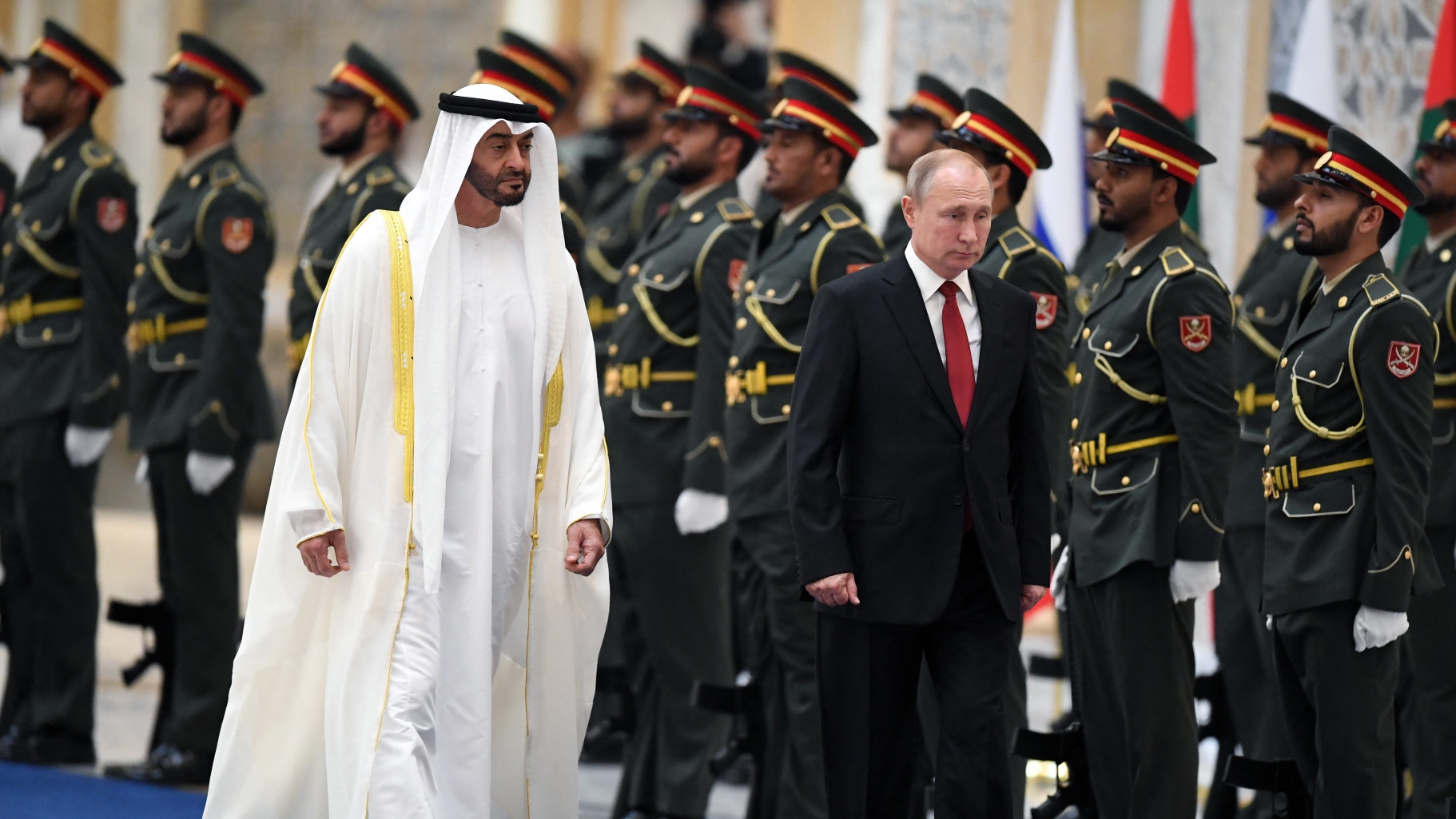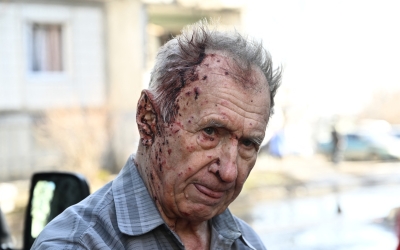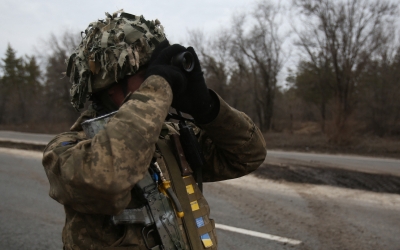Russia-Ukraine war: UAE not 'taking sides' as Gulf countries remain quiet

The United Arab Emirates on Sunday again showed its reluctance to condemn the Russian invasion of Ukraine, as the conflict continued into its fourth day.
The UAE "believes that taking sides would only lead to more violence," Anwar Gargash, the diplomatic adviser to President Khalifa Bin Zayed Al-Nahyan, tweeted.
The comment comes after the UAE abstained to vote on Friday on a draft United Nations Security Council resolution deploring Moscow's invasion of Ukraine. It did not pass because of Russia's veto.
"The UAE has a firm position regarding the United Nations, international law, and the sovereignty of states, rejecting military solutions," Gargash said.
"In the Ukrainian crisis, our priority is to encourage all parties to resort to diplomatic action and to negotiate to find a political solution."
Hours before Russia unleashed its massive ground, sea, and air assault against Ukraine on Thursday, the UAE stressed its "depth of friendship" with Moscow.
The National, a UAE-based publication owned by a member of its royal family, has reportedly told staff not to refer to Russia's attack on Ukraine as an "invasion".
Gulf countries have largely kept quiet about Russia's invasion.
Saudi Arabia has not reacted to the invasion, like the UAE, Bahrain, and Oman.
Kuwait and Qatar have only denounced the violence, stopping short of criticising Moscow.
'Ideological ally'
For more than seven decades, the United States has played a key role in the Middle East, serving in particular as a defender of the oil-rich Gulf monarchies.
But in recent years, Washington has begun limiting its military engagements in the region.
Gulf countries "understand that they need to diversify their alliances to compensate for the perceived withdrawal of the United States from the region", Anne Gadel, a Gulf expert and contributor to the French think-tank Institut Montaigne, told AFP.
'Staying silent on Russian action in Ukraine is probably the best course for this at the moment'
- Ellen Wald, Atlantic Council
Politics are paramount too.
Saudi Arabia and the UAE, two US allies hosting American troops, have seen their ties with Washington change over arms deals and rights issues.
The 2018 killing of Saudi journalist Jamal Khashoggi inside the kingdom's Istanbul consulate has strained relations between Riyadh and Washington, and the UAE has threatened to cancel a mega-deal for US-made F-35 jet fighters.
"Russia is seen as an ideological ally while American human rights strings attached to their support are becoming ever more of an issue," Andreas Krieg, Middle East expert and associate professor at King's College London, told AFP.
"There has been an integration of grand strategy between Moscow and Abu Dhabi when it comes to the region."
Diversifying relations
Despite growing security cooperation with Russia, which is directly involved in the Syrian and Libyan conflicts, Krieg says most GCC states will "still put their security eggs into the US basket".
But "they have started to diversify relations with American competitors and adversaries in other domains".
Trade between Russia and the GCC countries jumped from around $3bn in 2016 to more than $5bn in 2021, mostly with the UAE and Saudi Arabia, official figures show.
The UAE, in particular Dubai, has long been seen as a magnet for Russian investment, and a vacation destination for the Russian elite.
As major players in the energy markets, most GCC states have a relationship with Russia as fellow producers.
Riyadh and Moscow are leading the OPEC+ alliance, strictly controlling output to buoy prices in recent years.
Arab members of OPEC are in a tough spot diplomatically, as maintaining the OPEC+ deal, which controls production, "is clearly at the forefront of their considerations", Ellen Wald, a senior fellow at the Atlantic Council think-tank, told AFP.
"Gulf countries fear damaging this relationship and seek to maintain Russian participation in OPEC+... If Russia left the group, the entire agreement would probably collapse."
Despite calls by some major oil importers for crude producers to boost supply and help stabilise soaring prices, Riyadh, the world's top exporter, has shown no interest.
"Staying silent on Russian action in Ukraine is probably the best course for this at the moment," Wald said.
"But this pragmatic stance may become untenable if pressed on their position by Western leaders."
This article is available in French on Middle East Eye French edition.
Middle East Eye propose une couverture et une analyse indépendantes et incomparables du Moyen-Orient, de l’Afrique du Nord et d’autres régions du monde. Pour en savoir plus sur la reprise de ce contenu et les frais qui s’appliquent, veuillez remplir ce formulaire [en anglais]. Pour en savoir plus sur MEE, cliquez ici [en anglais].



